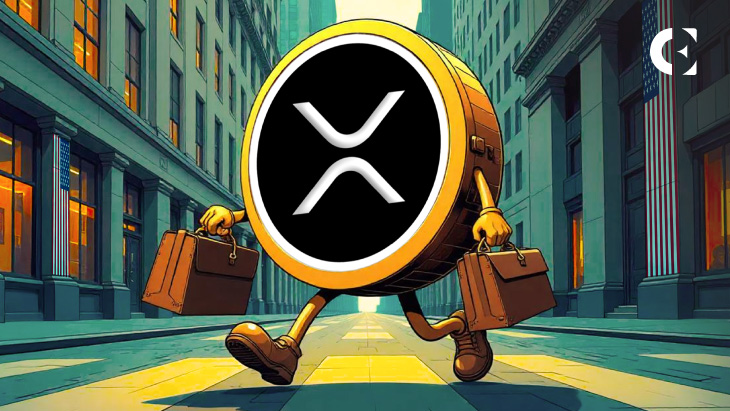- XRP’s validator network remains decentralized despite Ripple’s token concentration
- U.S. states and federal bodies align crypto policy with financial innovation goals
- Global institutions and banks increasingly adopt XRP for cross-border transactions
As the United States pushes forward to become the global leader in digital assets, new developments are shaping a national crypto strategy. Driven by a renewed political interest and a tech-savvy voter base, blockchain policy is evolving rapidly. A major focus has been XRP, a digital asset often misunderstood due to its token distribution.
As highlighted by attorney John E Deaton many critics argue Ripple’s holdings of 40% make the network centralized. However, the broader picture tells a different story.
XRP Centralized, Or Is It?
Deaton and other experts argue this confuses token concentration with network control. Significantly, over 75,000 XRP holders from 143 countries have united to support Ripple in its legal battle with the SEC. This wide global participation proves XRP with a highly decentralized user base.
Related: Ripple Co-Founder Arthur Britto Ends 14-Year Silence With Cryptic Post; XRP Price Reacts
Token concentration does not necessarily mean network centralization; people often confuse the two. The decentralized validation system behind XRP operates independently of Ripple’s control. Hence, the network itself remains distributed, secure, and transparent.
How Are Lawmakers Embracing Crypto?
While the federal government intensifies crypto discussions, many states are already acting. Massachusetts, long seen as a tech innovation hub, is exploring forward-thinking crypto policies. Ideas include accepting tax payments in crypto without triggering capital gains an approach that could inspire higher compliance and enthusiasm.
Moreover, state GOP leaders are collaborating with national figures to align crypto regulation with economic growth goals. Massachusetts GOP leadership is set to meet with innovators and policymakers to explore these opportunities. Their goal is to ensure the Commonwealth remains at the forefront of digital finance and blockchain innovation.
At the federal level, new directives reflect a shift in national priorities. Fannie Mae and Freddie Mac have been instructed to consider crypto holdings as mortgage assets. This move could unlock housing opportunities for crypto holders, blending financial innovation with practical benefits for American families.
What Is Driving XRP’s Global Adoption?
Besides its legal victories and decentralized user base, XRP has gained recognition from major global institutions. As noted by Edward_farina, an analyst, It has received endorsements or formed partnerships with the IMF, World Bank, and the European Central Bank. Financial giants like JP Morgan, Bank of America, and BlackRock have also acknowledged XRP’s utility.
Additionally, Ripple’s On-Demand Liquidity (ODL) service is now supported by hundreds of partners worldwide. These partnerships are not just symbolic. They represent a growing trust in XRP as a bridge asset for cross-border transactions. Its utility continues to outpace many legacy financial systems.
Disclaimer: The information presented in this article is for informational and educational purposes only. The article does not constitute financial advice or advice of any kind. Coin Edition is not responsible for any losses incurred as a result of the utilization of content, products, or services mentioned. Readers are advised to exercise caution before taking any action related to the company.









